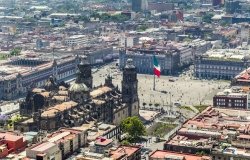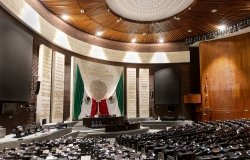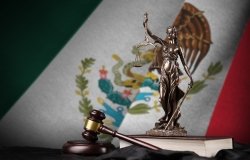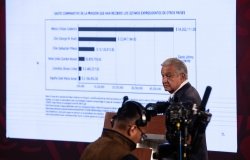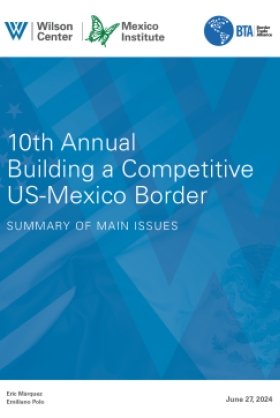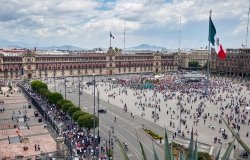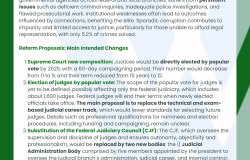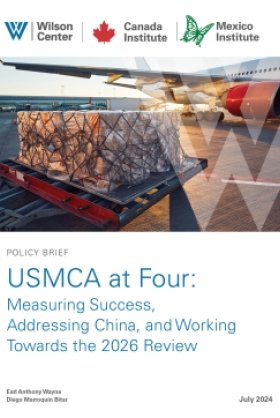Significance of the World Bank/IMF Annual Meetings for Mexico's Environmental Agenda
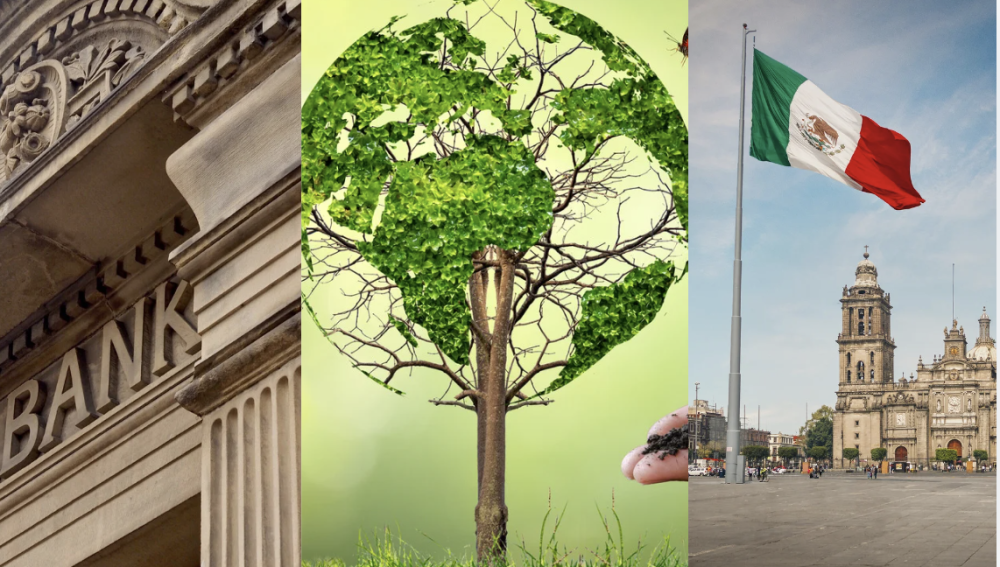
Dmitrii Larichev
The World Bank (WB) and International Monetary Fund (IMF) Annual Meetings bring together central bankers, ministers of finance and development, private sector executives, civil society, media, and academics to discuss issues of global concern, such as climate change, poverty and development. The 2024 Meetings took place from October 21 to October 26 in Washington, D.C.
Climate Change
The WB is the largest multilateral funder of climate investments in developing countries and has outlined several key recommendations for countries to address climate change, mainly through the Climate Change Action Plan (2021-2025) and other reports. The key recommendations are:
Increase Climate Finance
Governments should prioritize securing and allocating funds for climate-related projects, including both mitigation and adaptation efforts.
Strengthen Climate Change Adaptation:
Governments are encouraged to integrate climate risks into their policy planning and invest in resilient infrastructure.
Align Financial Flows with the Paris Agreement
Countries should ensure that their financial investments support low-carbon and climate-resilient development, aligning with the goals of the Paris Agreement.
Mainstream Climate Action
Countries should prioritize climate action across all sectors, by integrating and implementing climate considerations into development planning and policies.
Develop a New Rating System
Countries should adopt or develop rating systems to track progress on adaptation and resilience.
Boost Adaptation Financing
Governments should increase the allocation of funds for adaptation projects, help to manage the impacts of climate change and protect vulnerable populations.
Support Green, Resilient, and Inclusive Development
Countries should aim for development that is environmentally sustainable, resilient to climate impacts, and inclusive of all populations. This involves engaging in comprehensive climate and development diagnostics, planning, and policy-making at the national level.
Mexico's current government (2024 - 2030) proposed sustainability policies, as follows:
Protection and reforestation of forests.
Prohibition of new open-pit mining concessions, and evaluation of existing concessions, ensuring public awareness and minor environmental impacts. Additionally, hydrocarbon extraction through fracking will not be permitted.
Promotion of electromobility through the creation of nationally produced electric vehicles.
Coordination with state governments to address air pollution in the metropolitan areas of Monterrey and Guadalajara.
Construction of at least 10 recycling plants in the major cities of the country, including a circular economy plant.
Support the energy transition by renewable technologies. Construction of photovoltaic, wind, hydroelectric, geothermal, and green hydrogen plants, and promotion of solar panels and water heaters on residential and commercial rooftops.
Achievement of the designation of 30% of the Mexican territory as protected natural areas by 2030.
The World Bank Annual Meetings are vital for addressing pressing global issues such as climate change, poverty, and sustainable development. President Claudia Sheinbaum of Mexico has proposed initiatives that align with these priorities, including forest protection, promotion of electromobility, and the construction of recycling plants. However, the challenge lies in translating these proposals into real-world impacts.
The World Bank has outlined key recommendations for increasing climate finance, enhancing adaptation efforts, and promoting inclusive development. It is essential for the Mexican government to establish clear strategies and maintain accountability to ensure that these ambitious goals translate into tangible benefits for vulnerable populations and the environment.
Water
The policy recommendations recently issued by the World Bank for the water sector across countries fall into three issue areas:
Improving utilization and efficiency:
Improve Public Investment Management (PIM) to enable smoother and faster project implementation and to enhance absorptive capacity of the sector.
Reform Public Financial Management (PFM) to enable predictable, timely, and transparent flow of funds.
Develop a realistic metric of the performance of the public entities and State-Owned Enterprises (SOEs), to balance the tradeoffs between equity and efficiency.
Catalyzing the flow of long-term financing:
Develop a credible regulatory system for risk pooling and long-term financing.
Create special purpose financial institutions to channel long-term finances into the water sector.
Dedicate public and donor funds as guarantees to reduce risk associated with investments in the sector.
Reforming the water sector:
Cost recovery and demand management, through a combination of pricing and behavior change initiative.
Improve state capacity and the capacity of human resources to enhance absorptive capacity of the water sector.
Improve data access, transparency, and communication to improve accountability in service delivery in the water sector.
Mexico's current government (2024 - 2030) has proposed the following policies for the water sector:
Development of a National Water Plan and amendments to the Water Law (Ley de Aguas Nacionales), which will involve reviewing specific water concessions to regulate and prevent abuses in the transfer of concession rights and titles to third parties.
Promotion of the modernization of agricultural irrigation, the management of water use for industry and irrigation, as well as the implementation of strategic projects for water supply.
Creation of a river cleanup program for the most polluted watersheds in the country.
The World Bank Annual Meetings provide an essential forum to address pressing global concerns, particularly those in the water sector. The proposals from the Mexican president Claudia Sheinbaum align with these priorities, demonstrating a commitment to tackling water management challenges. However, there is still a lack of specific information on how these initiatives will effectively translate into real impacts and secure water rights for all citizens. This underscores the need for clear strategies and accountability to ensure that the proposed reforms result in tangible benefits for water access and equity.

Mexico Institute
The Mexico Institute seeks to improve understanding, communication, and cooperation between Mexico and the United States by promoting original research, encouraging public discussion, and proposing policy options for enhancing the bilateral relationship. A binational Advisory Board, chaired by Luis Téllez and Earl Anthony Wayne, oversees the work of the Mexico Institute. Read more





